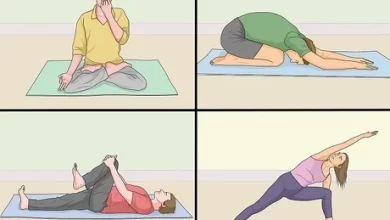12 things to look for when choosing a group home

Impairment For many years, group homes have existed in Australian towns, providing lodging for persons with disabilities. They are intended to be places where residents can obtain the assistance they require while methods currently and reaping the advantages of communal life.
In the past, handicap houses looked like hospitals and inhabitants had few options, but happily, things have changed. Companies are now concentrating on providing powerful services that encourage respect, soul, choices, and self – advocacy.
Not all group home are the same, so do your homework to choose one that not just fulfills NDIS and Specialist Disability Accommodation (SDA) standards, but is also ideal for families.
Here seem to be 12 items to examine when selecting a treatment center, as well as some questions to ask a provider when determining where to reside.
1. Your preferences have always been honored
A disability home should be a place where you are supported to make your own decisions, whether it’s voicing your views, choosing your everyday tasks from a variety of possibilities, helping to organize meals, or having a role in how your care is delivered. Staff should make you feel confident and in command. When it comes to business service, goals, and objectives, they should include you in the judgment processes.
Things to consider: How then do you plan your day’s actions? What’s your strategy for offering aid and making choices? How are individuals with disabilities’ rights respected at this home?
2. You are always treated respectfully
You should always be treated with dignity and respect as an individual. This means that you will have privacy for personal care and a sense of control over your space in a group home setting. You are represented fairly, you are not discriminated against, and your opinion and point of view are thought about.
Questions to consider include: There are private areas in the home? Are the residents of the home content, respectful, and cherished as people? How are residents treated by the care team?
3. You have possibilities to participate in group activities
A successful group residence will provide numerous possibilities for residents to become involved in the community, whether through outings, programmes, daily activities, education, or assistance in finding work. The house should be similar to other residences in the neighborhood and ideally positioned near public transportation, stores, medical facilities, library, and recreational spaces.
Questions to consider include: what chances for voluntary work exist? Do you have the ability to follow your interests? Is the care facility convenient to the things you require?
4. We are consistently promoted
According to research, allowing people with disabilities to participate in activities and social relationships improves their results. Staff should encourage you to accomplish things on your own and assist you in developing your talents. People should do things together rather than for you, so your support should be person-centered and motivating.
Concerns to think about include: What does disability support look like in a group home? What chances will you have to improve your talents and learn new things? What recreational events are available to you?
5. It is a joyful and healthy environment
Wherever you live, you should feel appreciated, heard, and cared for, and there should be safeguards in place to protect your mental health and wellness. From the level of sensory input and stimulation within the home to the opportunity to have friends and family visit you, the environment should also suit your handicap needs.
To ask: When you visit, do you get a good sense of the place? Do you feel at ease and relaxed? Can you get along with your prospective roommates? How does the staff look after the mental health and well-being of the residents?
6. It is a healthy and secure environment
Your good health is critical. You should have access to all of the resources you need to care for yourself, including medication management, allied health treatment, surveillance systems, care products, and complex health care. You should also feel protected and comfortable, having access to healthy food and being able to engage in enjoyable activity.
Questions to consider include: how else are meals handled at home (and are you involved in the preparation)? Can your medical requirements be met? Is there medical care nearby if you require it? Are you encouraged to engage in physical activity that you appreciate?
7. The home has the appropriate number of residents and employees
It’s critical to choose a location that allows you to meet acquaintances while yet having enough space for privacy and alone time. A disability home should contain no or more six inhabitants and enough staff to meet the needs of the inhabitants. According to research, homes with a diverse range of personalities, abilities, and support needs are more useful to residents and result in better outcomes.
How many individuals dwell in the disabilities home, for example? Can you meet them before moving in, or visit the house to see what it looks like? How so many employees work at the group home?
8. The house is suitable for your requirements
Since all foster homes must meet strict NDIS criteria for access living, it is crucial to ensure that the home is an inclusive environment with all of the supports you require. Arm rails, simple equipment, bigger entrances, fall alarms, and proximity to inclusive public transportation are examples of such features.
Will you be able to reach all areas of the house if you have limited mobility? Can you dwell inside the room securely and conveniently? Do you have transportation if you need it?
9. The workplace culture is positive
Watching how staff interact with one another and treat residents in a group home can teach you a lot. A good employee environment is one in which everyone is valued. Regardless of their background, front employees are encouraged and pleased, and residents are treated with warmth, empathy, and humanism.
Concerns to think about include: how do staff members interact with one another and with inhabitants? Do they appear to be enjoying their tasks? Do they show inhabitants decency and respect?
10. Your feedback is valued and not dismissed
It should be simple to provide feedback, express dissatisfaction to something, or inquire about your support in a group home.
Questions to think about include: What is the method for providing feedback? What occurs once feedback is given? Who should you contact if you have a problem or a question?
11. You have the ability to achieve your objectives
It is critical to be able to achieve your individual goals in order to carry on functioning freely, learn new skills, and improve yourself. To be a member of a group home should provide you with several opportunities to work on your goals while receiving assistance and encouragement as well as participate in activities that improve your quality of life.
Items to consider: How would disabilities support workers assist you in achieving your goals? What will your strategy entail? What will happen next?
It’s a location you enjoy!
Your space can feel like such a home. It needs to be a place wherever you feel at ease and secure. This could include having the ability to personalize your bedroom. Having space for your own photos and artwork. Making friends with the other residents, and having a say in matters such as meals and how the house is operated.
Have a look around the facility and see whether you like the way it feels. Could you possibly live here? Is it welcoming and comfortable? Is this a place you’d like to live? What have been the residents’ views like?
12. Group houses for the elderly
Community Caring offers high-quality group homes in which residents are cherished, supported, and integrated into the area. We meet a wide range of support needs as a registered NDIS provider. These homes are constructed to the highest standards, ensuring your well-being and safety.
We also provide the following characteristics:
- A Specialist Disability Accommodation (SDA) building if you require extensive care;
- People with disabilities may benefit from assistance with everyday duties, routines, and personal care.
- Help for those with mental retardation;
- Care for complicated people with significant disabilities around the clock;
- Beautiful covered and interior rooms with lots of space for socializing and seclusion;
- separate bedroom that can be customized to your preferences;
- Security features that make individuals with disabilities feel safe;
- Accessibility for those with limited mobility;
- Close to stores, parks, medical facilities, and public transportation;
- Access to WiFi to keep connected;
- Access to SIL (Supported Independent Living) services;
- A dedicated team of skilled caregivers and support workers on hand to assist;
- An opportunity to develop skills, participate in social activities, and participate in Disability Day programmes;
- Social events and opportunities to accomplish things you like.




